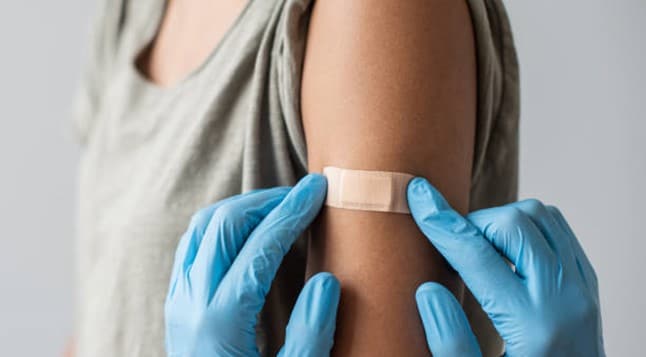Key points
- Vaccine is recommended for people aged 9 months or older who are traveling to or living in areas at risk for yellow fever virus in Africa and South America.
- Typically, one dose of the vaccine is safe and provides life-long protection against yellow fever.
- Some people may have an increased risk of developing a reaction to the vaccine.
- Talk to your healthcare provider to know if you should receive yellow fever vaccine before you travel.

Yellow fever vaccine recommendations
Yellow fever vaccine is recommended for people who are 9 months old or older and who are traveling to or living in areas at risk for yellow fever virus in Africa and South America.
The vaccine is a live, weakened form of the virus. For most people, a single dose of yellow fever vaccine provides long-lasting protection, and a booster dose of the vaccine is not needed. However, travelers going to areas with ongoing outbreaks may consider getting a booster dose of yellow fever vaccine if it has been 10 years or more since they were last vaccinated. Certain countries might require you to get the vaccine; visit Travelers' Health for information on specific country requirements.
Talk to your healthcare provider to determine if you need a yellow fever vaccination or a booster shot before your trip to an area at risk for yellow fever.
Reactions to yellow fever vaccine
Reactions to yellow fever vaccine are generally mild and include headaches, muscle aches, and low-grade fevers. Rarely, people develop severe, sometimes life-threatening reactions to the yellow fever vaccine, including:
- Allergic reaction with difficulty breathing or swallowing (anaphylaxis)
- Swelling of the brain, spinal cord, or the surrounding tissues (encephalitis or meningitis)
- Guillain-Barré syndrome, a nervous system disorder in which a person's own immune system damages the nerve cells causing muscle weakness, and sometimes, paralysis.
- Internal organ dysfunction or failure
If you recently received the yellow fever vaccination and develop fever, headache, tiredness, body aches, vomiting, or diarrhea, see your healthcare provider.
Am I at greater risk of a vaccine reaction?
Some people might have an increased risk of developing a reaction to the vaccine (precaution) but may still benefit from being vaccinated. A few people should not get the vaccine because they have a greater risk of developing a severe reaction to the vaccine (contraindication). Tell your healthcare provider if you have one of the following precautions or contraindications to vaccination.
Precautions
- Between 6 and 8 months old
- Over 60 years old
- Pregnant
- Breastfeeding
Contraindications
- Allergic to the vaccine or something in the vaccine (like eggs)
- Aged 6 months or younger
- Organ transplant recipients
- Diagnosed with a malignant tumor
- Diagnosed with thymus disorder associated with abnormal immune function
- Diagnosed with a primary immunodeficiency
- Using immunosuppressive and immunomodulatory therapies
- Showing symptoms of HIV infection or CD4+ T-lymphocytes less than 200/mm3 (less than 15% of total lymphocytes in children aged 6 years or younger)
